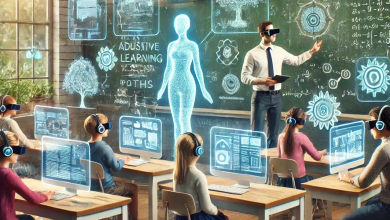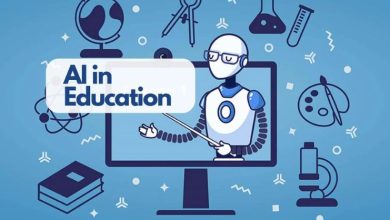Games are no longer just a source of entertainment in the fast-evolving digital world of today; they are now potent corporate and academic training tools used globally. Gamified learning is increasingly applied by organizations and institutions to enhance the skills of employees, raise motivation, and develop them for future endeavors.
But language and cultural translation are essential if training games are to be played by individuals across the globe. This is where gaming translation services come in very useful. These services ensure that training games are accessible, culturally relevant, and effective for learners in different geographical regions by accurately localizing in-game content, instructions, and interactive elements.
Key Benefits of Using Games in Training
One of the greatest benefits is heightened engagement, as games compel students to stay with the learning process by offering a sense of challenge and reward. Better knowledge retention results from this, as research indicates that interactive activities such as games improve memory recall far more than traditional lectures or written materials.
Moreover, games allow for a safe learning environment in which employees can experiment with real-world scenarios without the risk of the outcomes of doing so. Development and empowerment come from failing and learning from failure. Lastly, game-based learning uses real-time feedback and measurement of progress so that learners can value their performance better and improve
Industries That Are Utilizing Games for Employee Training
Organizations in numerous business sectors are turning more and more to game-based training to provide workers with an enhanced set of skills and expertise. Below is a closer look at how different sectors are utilizing games to educate and train employees.
Healthcare
Healthcare professionals are increasingly using simulation-based training games as an integral part of the healthcare industry. Through these simulations, professionals can practice complex surgical procedures, engage with virtual patients, and conduct emergency response plans. Healthcare experts can learn essential skills in a risk-free environment through this kind of training, enhancing their decision-making ability and quick response mechanism.
Aviation
One of the first industries to implement game-based training, especially in the form of flight simulators, is the aviation sector. Such cutting-edge simulators are used by airlines and military institutions to train pilots under actual flight conditions without putting them through the actual repercussions in the real world.
Pilots can rehearse from routine procedures to emergency procedures before getting into the cockpit, ensuring they are completely ready. Such simulations also improve decision-making abilities and response time under stress.
Retail and Customer Service
Virtual reality training games are also being used by retailers such as Walmart to train their employees on important customer care skills. Virtual reality games allow employees to gain hands-on experience in a safe virtual environment through simulating consumer interactions, store operations, and even conflict resolution.
Because VR games are very interactive, employees are better positioned to comprehend and react to numerous consumer needs, which improves customer satisfaction and quality of service.
Manufacturing and Safety Training
Production, petroleum, and construction industries make use of interactive games in safe practice training and machinery handling. By simulating dangerous work conditions, employees may acquire experience without risk while also learning to cope with possibly risky situations, such as accidents, or equipment breakdowns. Workers participating in simulations become more effective and confident about following safety legislation, reducing workplace accidents and the likelihood of injury.
Gaming in training and development provides employees in all these industries with a real, interactive, and enjoyable setting to develop valuable skills, making them better equipped to handle challenges in work and real life.
Conquering Language Hurdles in Game-Based Learning
While game-based training has become an innovative and engaging approach to improving skills, language constraints can decrease its effectiveness. If not translated appropriately, learners would struggle to comprehend major concepts, which would mitigate the training’s overall effectiveness.
The Need for Language Adaptation in Training Games
Effective training games rely on clear communication, ensuring that users are able to comprehend dialogues, instructions, and feedback. The learning process may become confusing and lead to frustration and reduced knowledge retention if these elements are not effectively translated to other languages and cultures.
Game-based training may be more inclusive, engaging, and effective for a range of audiences by considering linguistic and cultural diversity.
The Requirement for Quality Translation and Localization
There is more to successful localization than the mere translation of words from one language to another. It ensures that all aspects of the training game text, voiceovers, user interfaces, and in-game situations are appropriate for the culture of the target market.
To achieve accurate translation, this process involves the avoidance of errors that would distort the meaning. Additionally, cultural relevance must be considered through the alteration of language, references, and images to meet local standards. UI/UX design issues are also as important because they ensure text legibility and compliance with design principles.
Technological localization also considers differences in fonts, date/time formats, and other technological factors. Companies can create training games that effectively cross language boundaries and provide global audiences with a seamless learning experience by hiring any professional game localization company.
Wrapping Up
Game-based training has become an innovative, engaging, and highly effective means to upgrade the ability of employees of various industries. However, cultural and linguistic hindrances must be broken if the training games have to be developed for effectiveness all over the world. Professional solutions for game localization guarantee that study materials are rightly localized, suitably adapted according to culture, and motivate learners from any part of the globe.
Global companies can offer a seamless learning experience that enhances knowledge retention and engagement and supports skill development in a global, diverse workforce by investing in high-quality localization and translation.


